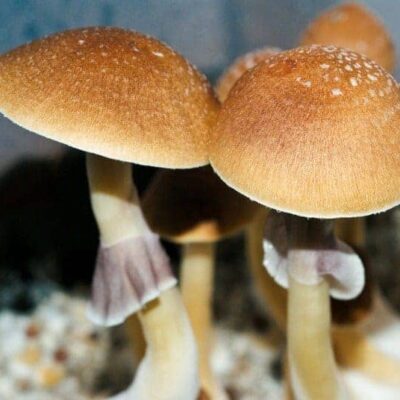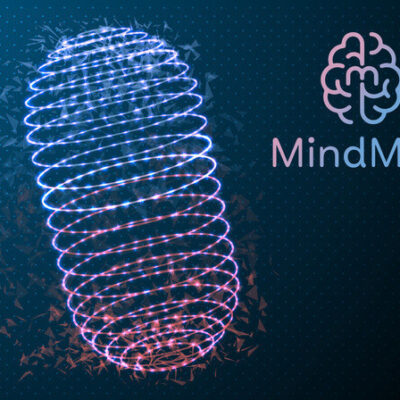Our marketing people somehow determined that I should write a piece comparing Oregon’s new psilocybin program with The Last of Us– which is a zombie show about a global pandemic caused by a mass fungal infection. Apparently this type of content gets a lot of eyeballs. I said: I don’t want to watch a whole zombie show right now. They said: you know about Oregon psilocybin, and you also know what zombies are. We lawyers call that kind of outcome, “I didn’t win.”
I’m sure The Last of Us is a great show. Instead of watching it, though, I went to Wikipedia just now — like an adult — and skimmed the lengthy entry. Below are my thoughts on what Wikipedia says about The Last of Us, on the one hand, and how zombies would work in the Oregon Health Authority (OHA) Psilocybin Services Program, on the other.
Will any Oregon service center clients become zombies upon consuming psilocybin?
I don’t think so. I’m not a doctor, though, and none of this is medical advice. It’s not even legal advice in fact. But I don’t anticipate any fungal infections in the OHA program, let alone zombification of service center clients. Let alone global pandemics.
I can say with some confidence that I don’t think OHA anticipates any of these things either. I do talk to them sometimes; I just haven’t asked. Elsewhere, I’m not entirely sure what the Drug Enforcement Administration (DEA) or Congress think. Those D.C. mandarins still list psilocybin on schedule I of the Controlled Substances Act, which is reserved for super dangerous drugs. Historically, this has made these compounds incredibly hard to study. But I digress.
The first reason I’m not anticipating any fungal infections is because the only psilocybin administrable under this program is psilocybe cubensis. Psilocybe cubensis was chosen by OHA because it’s one of the most frequently studied, most frequently ingested psychedelic mushrooms. The Oregon Psilocybin Advisory Board observed that cubensis appears safe and isn’t associated with wood lover’s paralysis, for example.
The second reason I’m confident that we’ll have little or no incidence of fungal infections here in the OHA program is that all psilocybin must be rigorously tested by ORELAP accredited labs. The limitation on species coupled with screening is like a belt-and-suspenders approach against both zombies and pandemics.
What about the zombie show mushrooms? Are they allowed?
That’s an interesting question. Wikipedia reports cordyceps as the fungi transforming people into zombies in The Last of Us. The language of Measure 109, and of its enacting statute, ORS 475A, does not limit the types of “psilocybin” mushrooms administrable under the Oregon Psilocybin Services Program. ORS 475A is also silent on the administration of any non-psychedelics mushroom.
Theoretically, a service center could make cordyceps available to patients, much like it could serve tea or granola bars. The only limitation on service center offerings is for other “intoxicants.” OAR 333-333-4400(1)(d). (See also OAR 333-333-1010(37), which provides, “[i]ntoxicant means any substance that has intoxicating effects, and includes alcohol, prescription drugs, non-prescription drugs and any other controlled substances. Intoxicant does not include caffeine or nicotine.”)
Here’s where it gets sort of interesting. A patient could bring their own cordyceps to a service center. See OAR 333-333-4448(7): “[s]ervice centers may permit clients to bring any food item… onto the licensed premises for consumption…”. Although I hadn’t been following this issue, a quick Google search indicates that people are already stacking cordyceps and psilocybin outside the Oregon program– with no zombie outcomes mentioned.
What happens if someone becomes a zombie upon consuming psilocybin at an OHA service center?
Again, I don’t think this will happen. I think at best a client somehow gets into an ego dissolution situation (great!), or mistakenly believes they’re a zombie (bad). But a licensed facilitator will be there at the service center, monitoring all the while.
The OHA rules don’t mention zombies specifically. They do address the related concept of an “adverse medical reaction” (OAR 333-333-1010(3)). I observed a while back that early drafts of the OHA rules were problematic as to the requirement that licensees immediately call emergency services in certain circumstances. The final rules were amended to require service centers to adopt procedures for client emergencies, and to take mitigation steps prior to contacting emergency services.
On the seemingly very small chance that someone becomes a zombie from consuming psilocybin and/or cordyceps (again, I’m not a doctor or a mycologist or any of these things), then the legal requirement is for the service center to try to deal with the situation per its protocol. If the service center failed on its own, the next requirement would be for the service center to make the zombie a problem for “emergency services” folks.
Finally, if the service center failed to adhere to its internal procedures in any zombie situation, or to call emergency services, its license would theoretically be at risk for violation of program rules. See OAR 333-333-6200(1).
Could an OHA licensed service center provide services to a zombie?
In theory, yes, if the zombie qualifies as a “person” under Oregon law. That seems like a thorny issue and again: not a doctor. But assuming the answer is “yes”, then the service center would have to do certain things: e.g., begin and end the session on time; collect sales tax from the zombie; and then not do certain things: e.g., offer the zombie free or discounted psilocybin; allow the zombie to bring its own psilocybin to the service center.
For their part (its part?), the zombie would have to meet the following criteria in order to consume psilocybin lawfully:
- The zombie “person” would have to be at least 21 years of age. OAR 333-333-4480(1)(a),(b).
- The zombie would have to participate in a preparation session with a licensed facilitator within a specific time interval, prior to dosing. OAR 333-333-5000(1).
- The zombie could not appear “visibly intoxicated” at the time of administration. OAR-333-333-4500(1)(c).
- The zombie must have completed a client consent form. OAR 333-333-4810(4).
The zombie would not have to be an Oregon resident, or have any sort of underlying medical condition to try psilocybin here in Oregon. That said, they’d probably have to be an upper middle class type of zombie. Same goes for you, on all of that.
Stay tuned
We will continue to track the OHA psilocybin program on the blog, and maybe even The Last of Us. If you are interested in Oregon psilocybin and zombies, please do not give us a call.
The post Oregon Psilocybin and The Last of Us (Zombies 😱) appeared first on Harris Bricken Sliwoski LLP.



